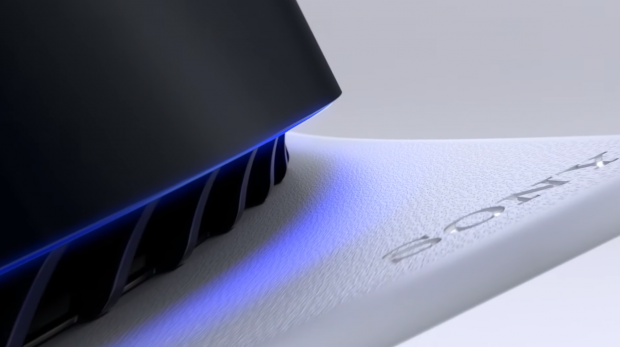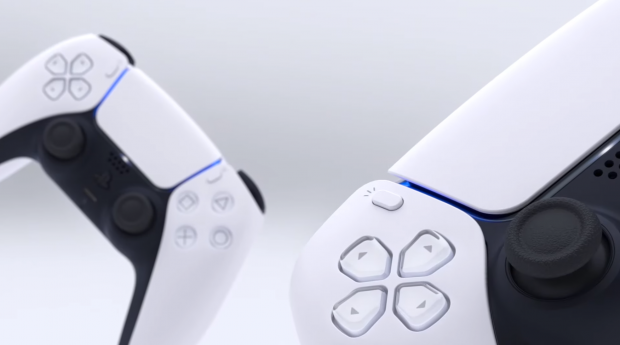Why does Sony believe in console generations whereas Microsoft doesn't? It's simple: Next-gen experiences require next-gen hardware.

In a recent interview with Geoff Keighley on a Summer Game Fest stream, Sony marketing exec Eric Lempel explained why the company believes in hard generational shifts. The answer is the kinds of games, experiences, and content that Sony wants to deliver just simply aren't possible on the PS4 Pro's lower-end 14nm Jaguar SoC. Sony's vision with the PS5 is ambitious and so is the tech that powers it. The kind of seamless, ultra-interactive, and dazzling experiences on the PS5 require higher-end hardware like the 7nm AMD SoC with its 10.3 TFLOP Navi RDNA 2 CPU, 8-core 3.5GHz CPU, 16GB of GDDR6 and ultra-fast PCIe 4.0 SSD capable of 5.5GB/sec speeds.
In the interview, Lempel says the PS5's generational leap is all about empowering developers. The PS5's new DualSense controller is a big part of that. The controller features programmable triggers that deliver tensile and dynamic haptic feedback, a new kind of rumble, and even sensors that measure air pressure so you can blow into it. The built-in speaker is also higher-end and there's a mic for communication, too.
Here's what Sony Senior Vice President, Head of Worldwide Marketing & Consumer Experience Eric Lempel said in the interview:
A big pillar of our company is innovation. It's a pillar of Sony Corp. and it's a pillar of the PlayStation company. We are always trying to push the boundaries of play. We want to excite gamers, we want to deliver new experiences.
So as we go into a new piece of hardware it really has to check the box on a lot of different areas to fulfill those promises. We've gone to developers about this, we've gone out there and talked to people about what they want in a next-generation console and really to do that you have to deliver a lot.
What I think is really unique about the DualSense is that it plays into another one of your senses. We're covering a lot of senses with the PlayStation 5. First and foremost is seeing, the visuals, the graphics. With the PlayStation 5, we're taking it forward there. And then there's sound, and we're introducing a new form of 3D audio which will be really powerful no matter what you're playing or how you're playing.
And the next piece is touch. We've had force feedback and rumble in the past, but the DualSense takes this to a whole new level similar to what gamers have expected from other generational shifts. This brings it to a whole new place.
It's haptic feedback, it's adaptive, dynamic triggers and something no one's ever experienced before and it really brings you closer to the game.
The biggest thing for us is putting this into the hands of developers because developers want to push the technology as far as it can go to tell stories and really bring the gamer into their world.
We believe all of these things combined as well as all the other great PS5 features we spoke about really lead to a next-generation experience.
In many cases, we can't take everyone with is from other generations into this experience. We need new hardware, we need new devices to experience what the developers want you to experience.

Read more: $69.99 is the new price of next-gen PlayStation 5, Xbox Series X games
Sony's next-gen PlayStation 5 releases Holiday 2020, but no pricing, pre-orders, or exact release date have been revealed. Check below for specs of the PS5 console:
PlayStation 5 specs and details:
- Custom SoC with second-gen Navi GPU, Zen 2 CPU
- 8-Core, 16-thread Zen 2 CPU at 3.5GHz
- Navi 2X GPU with 36 CUs on RDNA 2 at 2.23GHz
- Ultra-fast 825GB 12-channel PCIe 4.0 M.2 NVMe SSD with up to 9GB/sec speeds
- Two SKUs: Digital-only, and standard with a disc drive
- Support for 4K 120 Hz TVs
- Ray-tracing enabled
- 8K output support (for gaming)
- Plays PS4 games, BC is on a title-to-title basis
- Separate games that ship on BD-XL Blu-ray discs
- New controller with extensive haptic and tactile feedback


